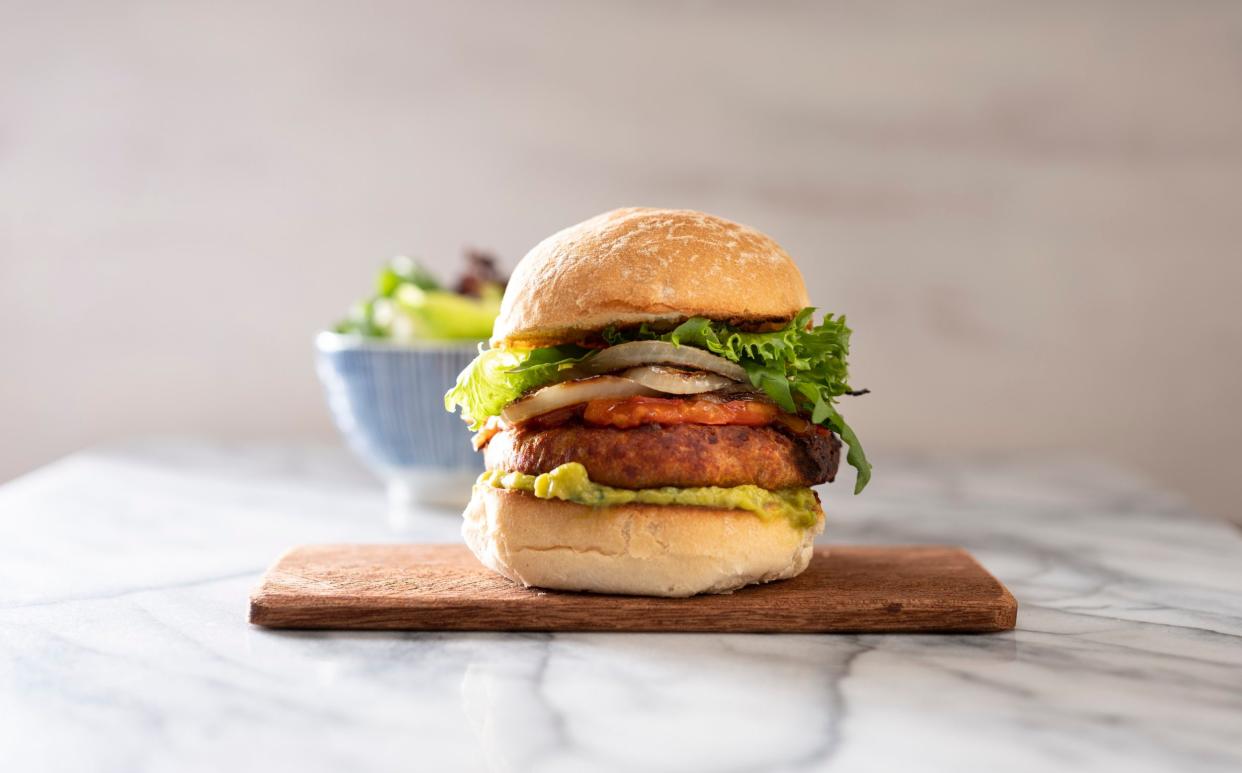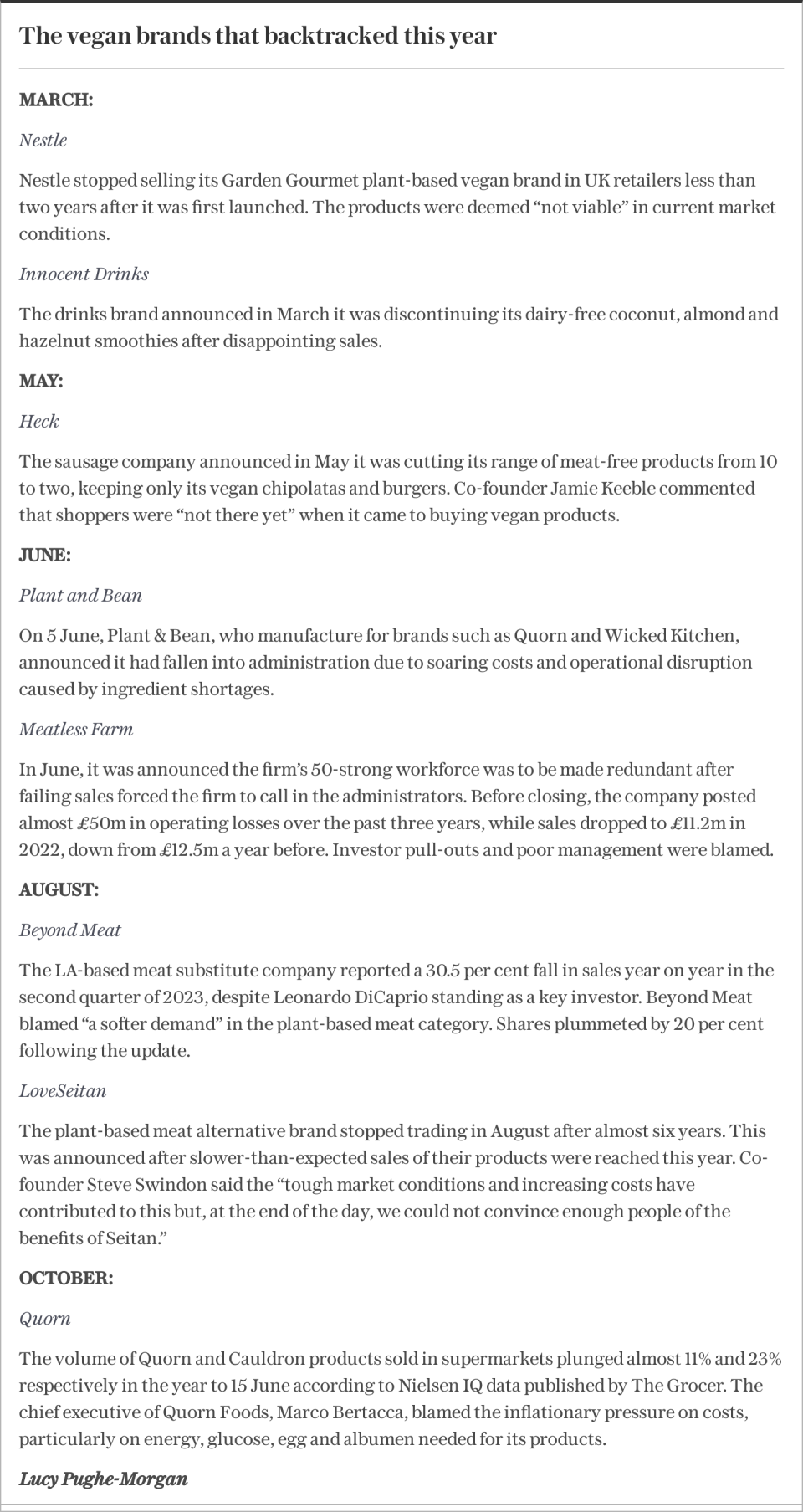Why vegan food could do your body more harm than good

The “ultra-processed” nature of some plant-based food is putting people at risk of health issues, experts have claimed.
Fake meat first came to prominence in 2012 and a rising number of fast food chains have introduced meat-free alternatives to menus due to soaring demand in recent years.
Most supermarkets now have aisles for people who want to buy vegan variations of meat products like burgers and sausages.
These items are made from plant-based products like pea or soy protein, which are combined with natural thickening agents, like maltodextrin, xanthan gum, and methylcellulose, to make them imitate the texture of real meat
But although these products are sold as “healthy” alternatives to real meat products, some could have serious health impacts, experts have claimed.
Rob Hobson, a nutritionist, and author of Unprocess Your Life, said that unlike a traditional vegan diet, which consists of fresh fruit and vegetables full of essential vitamins, the “ultra-processed” nature of some plant-based food is putting people at risk of health issues.
The claims come as people are encouraged to partake in “Veganuary”, an annual challenge run by a UK nonprofit that encourages people to follow a vegan lifestyle over January.
Mr Hobson said plant-based meats often contain thickeners to hold the product together, as well as emulsifiers that can have a long-term impact on health.
He said: “These foods need stabilisers, thickeners, and all sorts of other ingredients to hold the product together.
“[They have] sugar and saturated fats, and additives as well as gums and emulsifiers that are having an impact on long-term health and chronic disease. Unless those foods or plant-based products are fortified, they’re going to have lower levels of nutrients, which are important for pregnancy.
“A lot of women that get pregnant can end up with anaemia because they don’t get enough iron in their diet. I mean, the thing is, if you were following a well planned vegan diet, you would include things like beans and pulses and green vegetables – you deliberately include foods that would help you to get more iron in your diet,” he added.

According to Chris Elliott, a food security professor at Queen’s University Belfast, plant-based products have little nutritional benefits.
He said: “Most of these fake meats people are buying have a very large amount of highly processed soy or pea protein.
“These proteins have nothing apart from calories, there are no other nutritional benefits [for people]. They are bereft of fatty acids, they are bereft of essential vitamins.
“People are buying these foods thinking they’re being healthy, but actually what they’re doing is eating lots of additives that you wouldn’t find in ‘whole foods’.
“There are reports to say that pregnant women are most at risk from switching from a conventional diet to these plant-based diets because they are going to be very short of omega-3, vitamin b12, and vitamin D.”
Professor Elliott, who led the independent inquiry of Britain’s food system after 2013’s horsemeat fraud, claimed the plant-based food movement is being pushed by some big companies looking to turn a profit, not for “saving the planet”.
He said: “The drive towards a lot of the products that we see in the markets now, the plant-based stuff, the big vegan labels, it’s not being done to help people, it’s not being done to help the planet, It’s being done by big corporations to make huge amounts of money.
“The profit margins on those products are five times what conventional food is. That’s the driver, the driver is money.”
Vegan producers have taken a hit in recent months as customers turn away from their products. A number of popular businesses in the industry have recorded fewer profits this year than expected, with some saying that there is less demand for plant-based products.
Recommended
Ethical investing: the key to higher returns or ‘woke’ nonsense?

